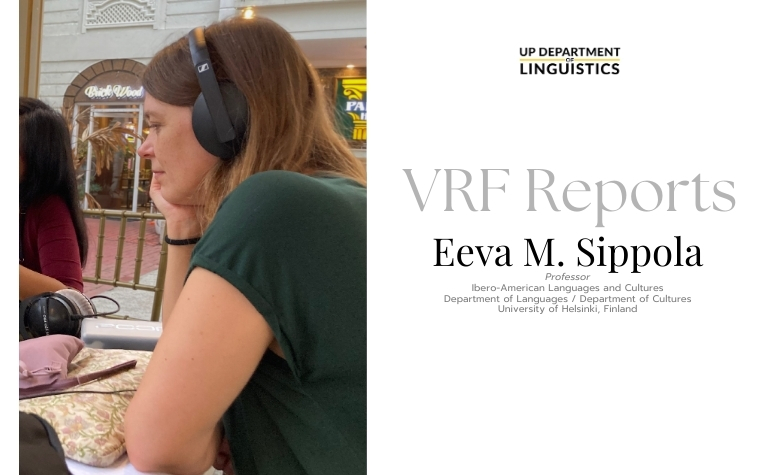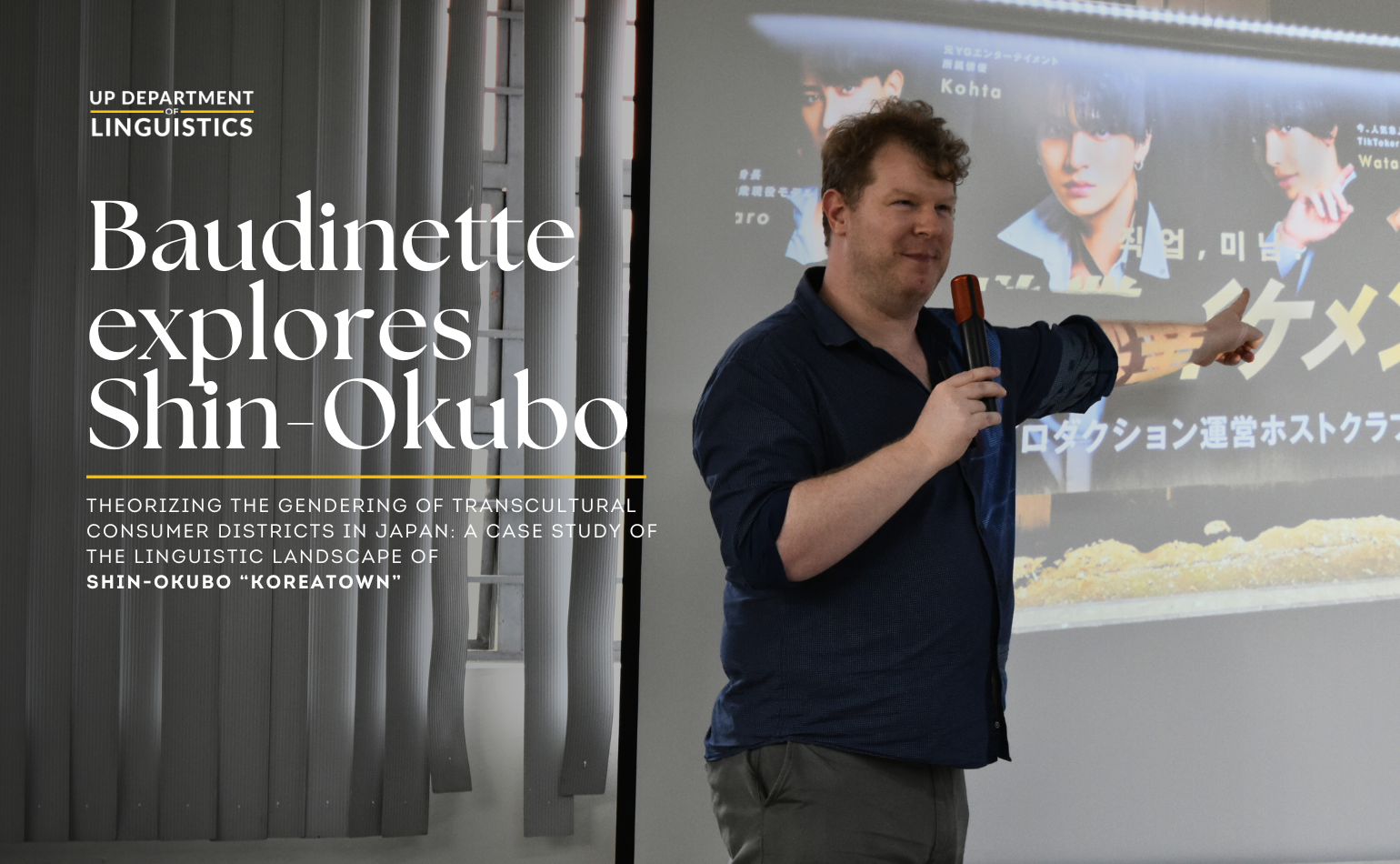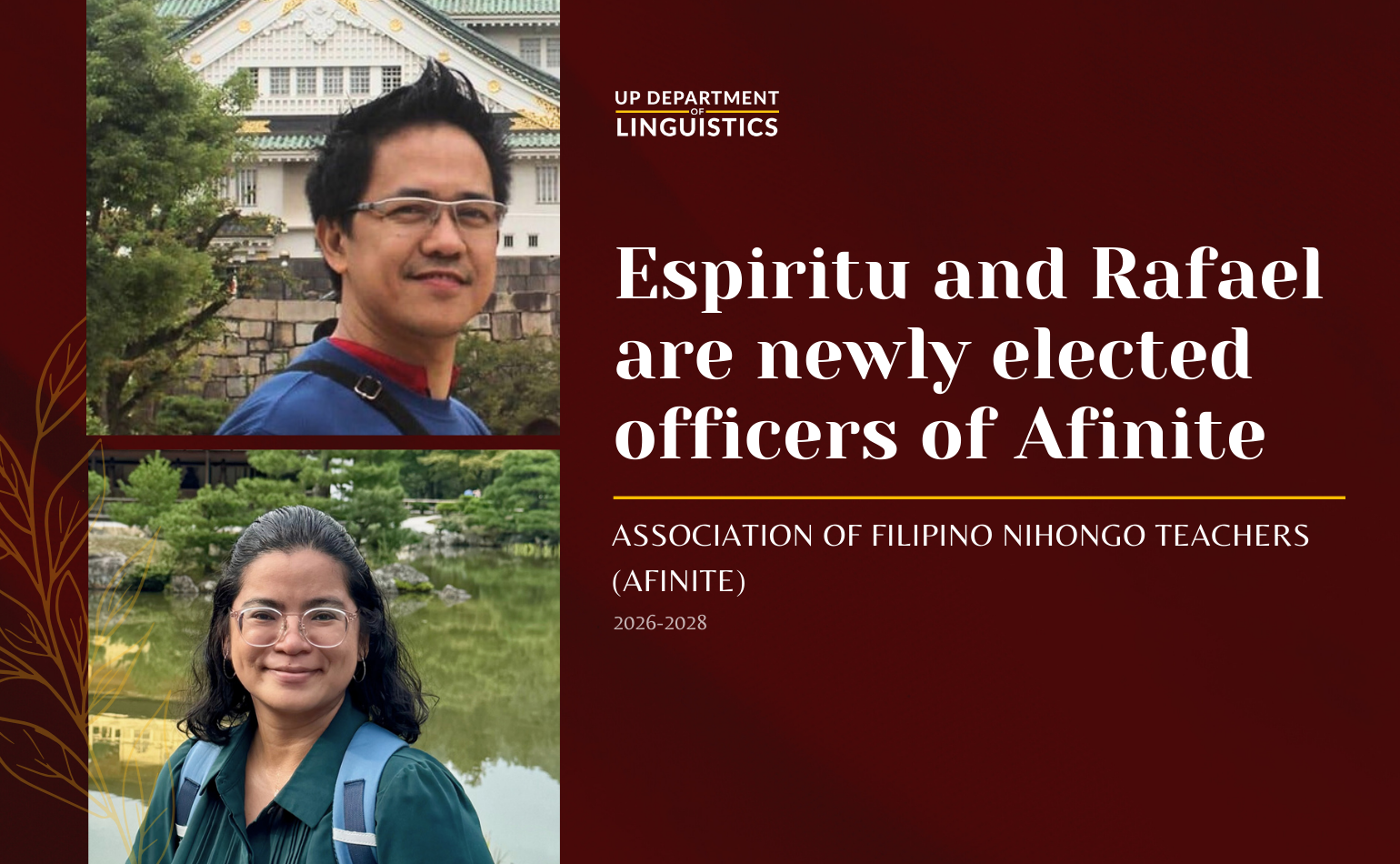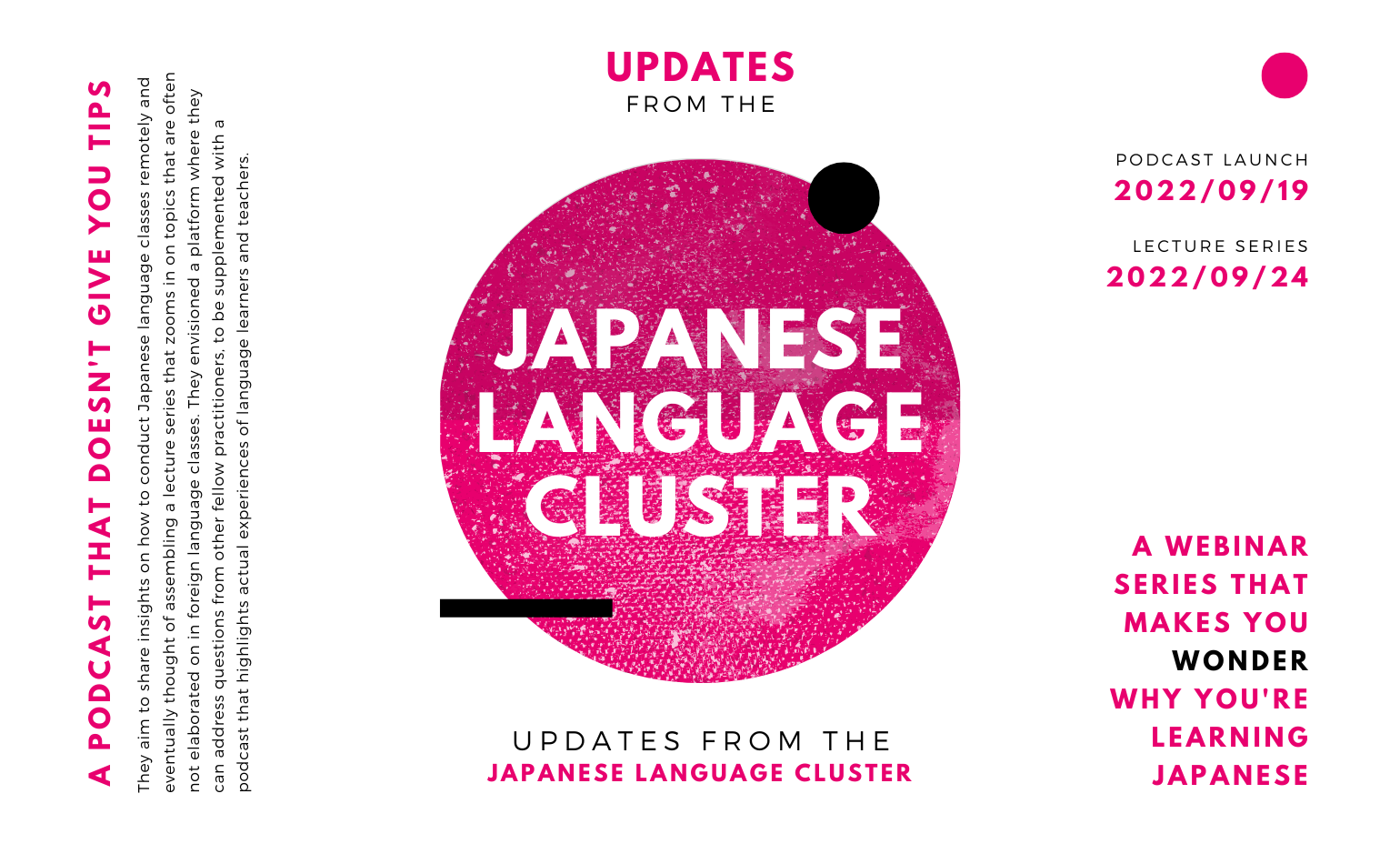
Since September 2022, the Department’s Japanese Language Cluster has been organizing and hosting activities as part of their celebration of the Department’s centennial anniversary. It launched the pilot episode of 日本語学習のコツを教えないポッドキャスト (“The Podcast that Doesn’t Teach You Tips and Tricks in Japanese Language Learning”) last September 19, followed by the first installment of the lecture series 日本語を勉強するんじゃなかった (“I Shouldn’t Have Studied Japanese”) on September 24.
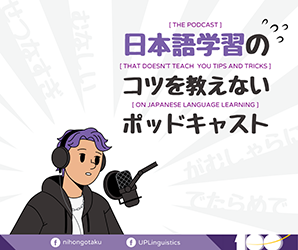
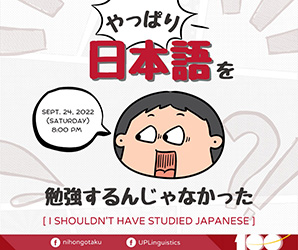
According to Asst. Prof. Ria P. Rafael, the current coordinator of the Japanese Language Cluster, the idea for conducting such activities came about during their virtual 飲み会 nomikai (‘drinking party/gathering’) in mid-2020. Through these virtual nomikai sessions, the Japanese language instructors were able to provide each other with emotional and professional support during that time, which was the height of the COVID-19 pandemic and the period when the University suddenly had to switch to remote and online learning. They were able to exchange insights on how to conduct Japanese language classes remotely and eventually thought of assembling a lecture series that zooms in on topics that are often not elaborated on in foreign language classes. They envisioned a platform where they can address questions from other fellow practitioners, to be supplemented with a podcast that showcases actual experiences of language learners and teachers.
When asked why this kind of endeavor is important, the Japanese language instructors collectively acknowledged that students and teachers of Nihongo in the Philippines have unique personal experiences, and thus there is a need for productive conversations and discussions that consider issues and challenges from the vantage point of local learners and instructors. Through the podcast and lectures, they are able to reach a wider audience not limited to those enrolled in the Department’s language classes. Additionally, aside from fostering a learning space and providing a source of motivation for attendees, the organizers also learn from the participants’ experiences which are often taken for granted or left undiscussed. This kind of interaction prompts the Japanese language teachers of the Department to reflect on their own learning and teaching strategies.
There are several enriching activities to look forward to in the coming months. One is a collaboration with local and foreign language teachers, alumni, and other Japanese language and culture enthusiasts for future episodes of the podcast. Another is a livestream event featuring the faculty members who organize the podcast and webinar series. They also plan to showcase the outputs of students from previous semesters and make the webinar recordings available to the public.
The first episode of the podcast series, which features Cristopher Dofitas and Michael Manahan, tackled the journey of the senseis as language learners. Meanwhile, the second episode features Dofitas-sensei‘s chat with Akiko Sunga on Japanese speech sounds and intonation and honing one’s pronunciation skills. Each episode is divided into four parts.
The first installment of the lecture series, which is mainly hosted by Asst. Prof. Farah Cunanan, focused on the senseis’ struggles and anxieties in learning Japanese, while the second installment explored perspectives on teaching and learning Kanji.
For more updates on the activities of the Japanese cluster, you can visit their Facebook page. And if there are Japanese language-related topics that you would like to be discussed in their future events, you may inform them through this link.
Published by Patricia Anne Asuncion

